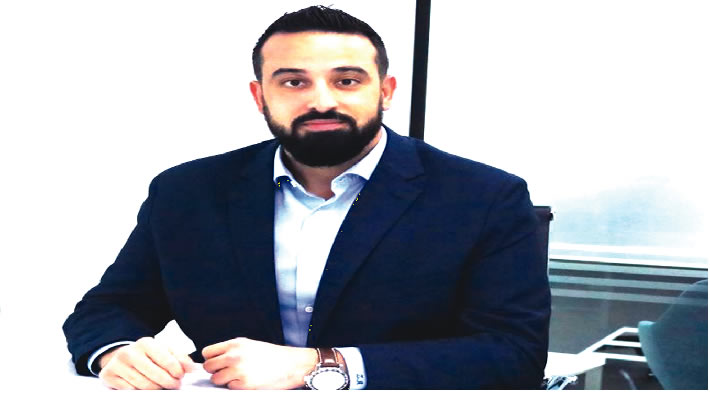
Managing Director, Citizenship Bay, Mr Zaid Aldayriyeh, speaks with GRACE EDEMA on how Nigerians can take advantage of foreign citizenship and residency programmes
What are the benefits of having dual or multiple citizenships?
There is basically a wide range of benefits but the first is that second citizenship gives you and your family access to an insurance policy. Coming from a developing country comes with an increased risk of facing economic and political instability. So, having a second citizenship to lean on during a significant time is always very important.
Secondly, very often European citizenship will give you access to all of this, in addition to giving you the right opportunity to live in your own apartment. The Caribbean, for example, will give you visa-free access to more than 150 countries including the United Kingdom, Schengen countries, Singapore, Hong Kong, and many other countries.
Thirdly, all citizenship and residency investment programmes give applicants the platform to actually invest to qualify for their programmes. This allows the applicants not only to get citizenship or residents of that country but also to have a solid investment and diversify their portfolios.
When you try to tell people to have citizenship, do they feel you are saying their countries are underdeveloped or they are second-class citizens?
Just to be clear. Dual citizenship is allowed in all those countries. So, as a Nigerian, it is permitted by law to hold more than one citizenship. It is nothing about nationalism. You do not have to give up your own country for another country. As a matter of fact, all the programmes that we work with do not require relocation. Many of them do not even require you to travel there. It is just basically a matter of you having a plan B. Coming from a developing country, it is a reality that we do suffer at the end of the day. Nigerians suffer and many other developing countries’ citizens suffer. That is because we come from certain countries and these tragedies have always been there and will always be there. As a matter of fact, I was reading a study the other day and the highest rejections for UK visas were basically for Nigerian nationals. There are many successful Nigerians and individuals who just want to travel to the UK or Europe for business, meetings or even tourism but they cannot do that, just because they come from a certain country. There is something we have witnessed over the last decades or so that has made having a second citizenship or passport a necessity. It is not a luxury anymore because a citizen or businessman will not want to be held back by a certain passport or nationality. So, you need to always be on the move. You need to have a plan B. With a second passport, you know you can be receptive abroad. You can explore global business and investment opportunities. I have a dual citizen myself and I have never thought of giving up my own country for another country. This is just like a smart investment that people make just like you buying real estate or investing in an oil firm.
So, what does it take to get foreign citizenship?
There are different options and types of programmes that are available. First, you have immigration programmes that you do not work with. Those are traditionally for countries like Canada, the USA, Australia, and New Zealand, countries that are looking to attract immigrants because they need people to physically move there. And you have countries that have citizenship by investment programmes. These countries are hoping to attract foreign direct investment to better the country’s infrastructure and investment in their national projects. What you get in return as an investor is that you get citizenship and a passport in a short period of time, which ranges between four to six months without you relocating there. The main benefit, of course, is that you have citizenship for life and a strong passport that gives you all the benefits that come with it. There are also countries that are looking for an investment that will give you residency. They will not give you citizenship straightaway but residency. These are countries in Europe such as Portugal, Cyprus, and others. They will give you residency for a certain investment that you have to make in that country. What do you get? You get a residency in Europe. You have access to things in Europe. At the same time, you do not have to physically relocate to Europe. You will just have the residency as a backup if you want to travel to Europe. Visa remains the main benefit of it.
So, what we focus on as a company is citizenship by investment and residency by investment.
Do you have to relocate to get citizenship by investment?
The majority of our clients do not relocate. They just want to have a smart investment that they make and it opens doors for them but you rarely see anyone relocating, to be honest.
What are the things that may prevent some businessmen from getting citizenship or residency in these European countries?
Our role as a company is to advise our clients on what is the best way on that particular programme. The grounds for rejection are very simple- if you have a criminal history, you have been convicted and you have some open cases against you. If you have any issues with your background, keep it simple.
The other one is your source of funds. Your source of funds will determine if you can be considered for one of those programmes. If you cannot justify where you get your money, you cannot apply. These are the two main factors that would be the grounds for rejection. You have to have a clean background and you need to have a clean source of funds. These are two factors that any government will consider before making a decision on your application. Along with this, you need to submit an application that includes some government forms, and certain documents that the clients need to provide such as certificates, police certificates, and bank statements. It is from one programme to another. But that is what we give the clients and walk them through the process from A to Z, from the moment they start to the moment they actually receive their citizenship or residency.





